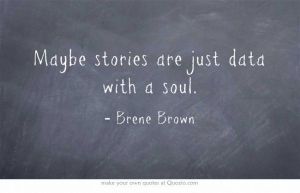 My speaking engagements are on a variety of topics – the value of peer support, disclosing diagnosis, and partnering with patients and families. In any presentation, I always tell elements of my story, my family’s story, and Aaron’s story. This is a tricky thing. When I’m sharing other people’s story, I am aware of the need to collect consent from the people I am representing.
My speaking engagements are on a variety of topics – the value of peer support, disclosing diagnosis, and partnering with patients and families. In any presentation, I always tell elements of my story, my family’s story, and Aaron’s story. This is a tricky thing. When I’m sharing other people’s story, I am aware of the need to collect consent from the people I am representing.
Aaron and I will walk through a presentation beforehand, and he helps me pick out photos for my slides. At my last presentation, at the Emergency Department conference, I shared a story about my 17 year old daughter, Ella, of her experience before she went into the OR. I asked Ella if I could use her name and her story, and she shrugged and said ‘ok’. She has a beautiful little story about the importance of human touch in health care – how her doctor held her hand as he talked to her in the OR, and how it helped her feel like everything was going to be OK.
I really hope one day Aaron will be behind the podium, telling his own story. (If he wants. Without coercion from his mother, of course).
I also regularly speak to health faculty students at the University of Alberta. Yesterday, my friends at at the Health Sciences Council kindly invited me to attend a webinar hosted by the Centre for Digital Storytelling called the Role of Narrative in Public Health.
The webinar validated my belief that personal stories are powerful agents of social change, and that stories also help make sense of seemingly random events. What I found most interesting was the discussion about ethics on storytelling, particularly with patient and family stories, which may contain sensitive health information.
The Center shared some great points:
1. Take care to ensure the storyteller’s well-being. Facilitators who help people to tell their stories must be trained to be supportive, and also need to be culturally aware.
2. People must be able to tell their stories from a position of strength.
3. For organizations facilitating storytelling, watch out for power imbalances.
4. Understand that consent is a process, not a one-time activity.
5. People should be able to make their own choices about how personal information is shared.
6. Be clear about who owns the story product and how it is going to be shared.
7. Consent should be able to be withdrawn at any time, without negative consequences.
I’d also add three points from my experience coaching families at the Stollery Children’s Hospital to tell their story:
- Ensure people know that they can keep whatever they want private. When answering audience questions at a presentations, they can also opt not to answer any questions that make them uncomfortable.
- It is important to talk about emotion in stories, particularly when people are talking about loss. I suggest rehearsing the story a lot if it is going to be presented orally – sometimes you can rehearse the emotion out of it. But showing emotion is not a bad thing! You just don’t want it to take you by surprise if you are standing up on the stage.
- Ask permission from your family and children if you are telling their stories. They should know what pictures you are using, and what stories you are sharing. Younger children or kids with disabilities should be involved in this process, too in the way that they can.
Stories need to be honoured and the storyteller must be treated with respect and dignity. As anthropologist and sister Liz Lewis recently said on the Bloom blog: I want to tell Katie’s story, to use my own family’s experiences and those of others like us, to effect change and make people listen.
Can we change the world by sharing our stories? I think that we can, but we must always be mindful of supporting and caring for the storytellers (and that includes ourselves, too).